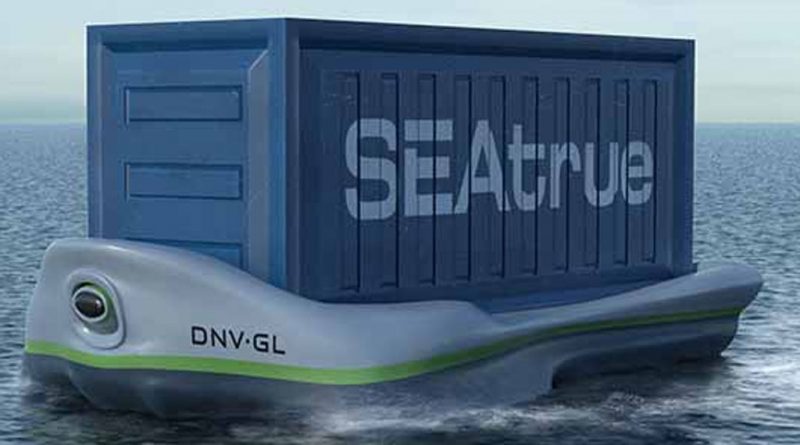Students design autonomous containers to disrupt sea freight of aquaculture products
The seafood industry must comply with increasingly strict demands of consumers on sustainable seafood production. For that reason, a group of Norwegian graduates have spent their summer developing smart “robot containers” with cooling systems that can sail to ports without any human interaction. Technological advances offer us unprecedented opportunities for efficient seafood production. Enhanced cooling systems for extended shelf life, autonomous vessels and big data can reduce costs, ensure higher product quality and better informed consumers. We seek to seize the opportunities that these new technologies affords,” says project manager Ole Johan Lønnum, a marine technology graduate at NTNU.
Along with eight other graduates, he has developed SEAtrue, a supply chain for offshore distribution of aquaculture products. The consumer application TraceEat sends information about consumer preferences to the digital platform Veracity, which enables best possible use of resources. The seafood is transported in autonomous smart “robot containers” which employ sophisticated cooling techniques to extend shelf life.
“SEAtrue is a cutting-edge supply chain system that allows for optimal distribution and lower emissions. Moreover, it adjusts production to meet demand and thereby enhance a sustainable aquaculture industry,” Lønnum adds.
The self-propelled containers are released from the processing vessel and either positions itself for pick up by a designated container ship or sails directly to a nearby port. That way, transportation by sea becomes more effective and efficient. Veracity, DNV GL’s proprietary digital platform, uses data from an autonomous fleet of container ships to determine the optimal routing to reach the consumer.


